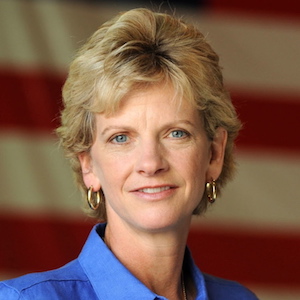
 Robin Carnahan, Director of State and Local, 18F
Robin Carnahan, Director of State and Local, 18F
Robin Carnahan spent the better part of a decade as secretary of state for Missouri before joining the General Services Administration’s 18F digital services team in 2016 to lead its state and local efforts. “Our team has accomplished a lot in the past year. Not only did we ramp up fast, working with 18 state and local agency partners, we’ve also helped several states develop new ways to procure IT services faster and attract new vendors into doing government work,” she tells FedScoop. “It’s exciting to see working software that users want being delivered in months rather than years.”
What would you say to young women who are thinking about a career in technology or related fields, or just starting out in their careers? What’s the best advice you could offer for success?
Learn all you can about technology but remember, ultimately, it’s not about the tech, it’s about creating something valuable for people. Focus on things that matter. Learn to write.
What/who inspired you to get into your field of work?
I’m a good-government geek and grew up in a family that moved back and forth between government and the private sector. My career followed the same pattern, so I understand both sides. Our democracy only works if people have faith that government can actually deliver. In the past decade, technology has dramatically changed our expectations about what good service means, and we’ve all come to expect great service at our fingertips that’s fast, convenient, user-friendly and available 24/7. My interest in government technology grew out of a passion for bringing the same level of service we’ve come to expect in our everyday lives into government. I can have a book or pair of shoes delivered to my house tomorrow with just a couple of clicks. It’s time we made interactions with government just as easy.
As an elected official I lost more sleep worrying about technology projects than anything else, because they always seemed to be over budget, past deadline or just didn’t work. It turned out colleagues around the country felt the same way. That’s when I started thinking about ways we could all stop taking on the cost and risk of reinventing the wheel on our own, and instead look for ways to share and collaborate on building reusable tools.
Why is it important to you to empower women and other minorities to join more technical and technology-related fields?
We’re living through a time of revolutionary change where technology is eating everything. Coding is not just technical, it involves setting priorities and making value judgements. Data analytics isn’t just about the numbers — it’s about the stories and conclusions we draw from the data and the policy that flows from that. The human element of this work will be more important than ever, and it’s critical that the unique life experience of women and minorities are reflected in new technology tools as they’re developed. Increasingly, technology tools will govern our lives and shape our futures. We all need to be a part of that.






